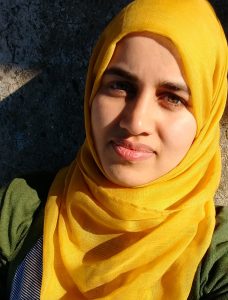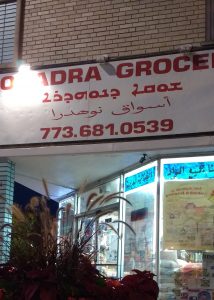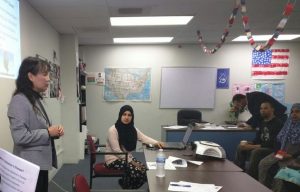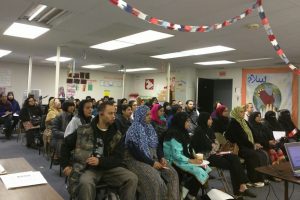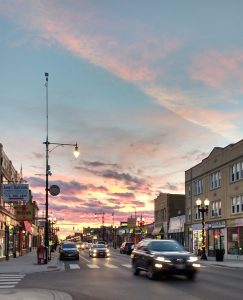My name is Ariane Rahim. I’m a senior majoring in French and double-minoring in Arabic and Islamic World Studies. I have recently completed my Arabic minor and currently one of the Arabic tutors at Loyola.
What comes to mind when you think of Devon? Generally, it’s a place known for its spicy samosas, sweet ladoos, colorful saris, and sparkly scarves. People quickly think of Desi culture, the Urdu and Hindi languages, and Indian and Pakistani restaurants. Although Devon is home to such a vibrant culture, it is also home to another one: the Arabic culture.
When I worked as an office assistant at the Muslim Women Resource Center (MWRC), a non-profit organization focused on helping immigrants, refugees, and low-income families of various backgrounds, the languages I knew really came into use. At the time, I was also studying Arabic and I found many opportunities to practice it. Initially, I spoke a little Arabic with my Palestinian and Moroccan coworkers. Eventually though, I developed the confidence to speak to our clients as well!
The biggest fear in a language comes when you’re not actually implementing it and speaking it. I realized this quickly when a client walked into our office one day and I was the only Arabic-speaking worker in the lobby area. Generally, people assume I am a native Arabic speaker so when this client walked in, he said “marHaba.” Automatically, I answered “ahlan,” because we had gotten so used to doing so in Arabic class. To my surprise, the client immediately communicated his concerns in effortless Arabic. I was flustered trying to translate his words mentally while simultaneously coming up with a quick response in Arabic.
However, practice makes perfect. A few weeks later, another client came who was originally from Iraq. With Modern Standard Fus-Ha words, I managed to book him an appointment and notify him of the date and time! Interestingly enough, Arabic isn’t just useful in an immigration office. A few months later, I ran into this same client in one of the Northern Suburbs. Again, we spoke in the little Arabic I knew and the little English he knew to inform one another of where we lived and to introduce each other to our families, who were with us at the time.
Arabic can be studied to understand politics and our global neighbors. However, the beautiful language is just as useful in our own city because with it, we can understand and welcome our new neighbors. At the same time, Arabic can strengthen bonds with our old neighbors, who have shared this city with us for (at least) decades.

